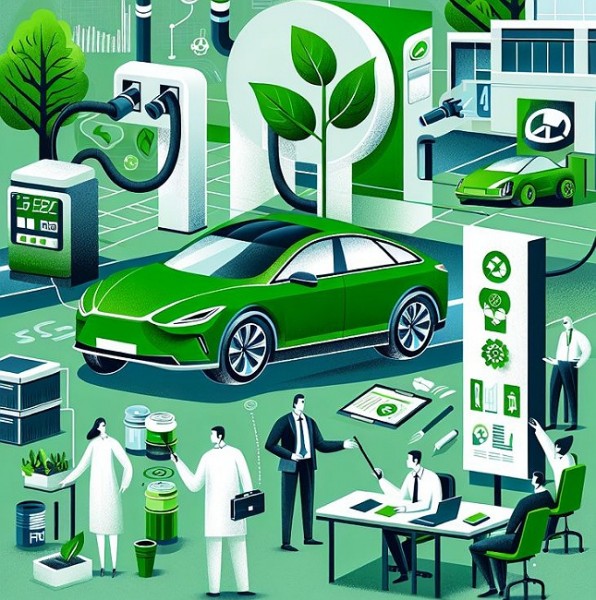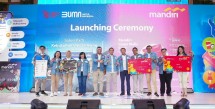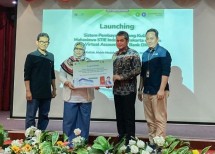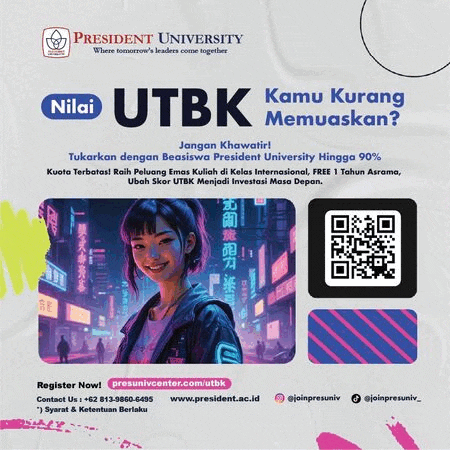Green Marketing and Toyota's Green Marketing Practices
Oleh : Zhang Dan, Master Of Technology Management, Faculty Business, President University | Kamis, 16 Mei 2024 - 18:50 WIB

Green Marketing (Ilustrasi)
INDUSTRY.co.id - Green marketing, also known as environmental marketing, is a market marketing strategy that is guided by environmental protection. It focuses on how to integrate environmental factors into all market marketing decisions such as product development, pricing, sales channel selection, and promotion activities. Its main goal is to minimize the negative impact of production and consumption activities on the environment by promoting and promoting environmentally friendly products and services.
I. Overview
Green marketing first appeared in the 1970s when companies began to realize that environmental protection is an important part of their social responsibility and began to consider how to achieve both environmental protection and profit goals in their operations. In the 1980s, as consumers' demand for environmentally friendly products increased, green marketing gradually developed into an independent market marketing branch. Today, with the increasingly serious global environmental problems, green marketing has become an important strategic tool for enterprises and organizations to achieve sustainable development on a global scale.
II. Green Marketing Strategies
Green marketing has the following important strategies:
• Green Product Development Strategy: This strategy mainly focuses on how to consider environmental factors in the product design and production process, such as choosing environmentally friendly raw materials and production processes, designing recyclable product packaging, etc.
• Green Pricing Strategy: This strategy mainly refers to reflecting the environmental cost of products through reasonable pricing, and attracting consumers to buy environmentally friendly products through price advantages.
• Green Distribution Channel Strategy: Choose sales channels with the least environmental impact, such as e-commerce.
• Promoting Awareness and Acceptance of Products and Service.
• Green Public Relations Strategy: Establish and enhance the company's green image and create a green brand through corporate social responsibility projects, environmental protection activities, etc.
III. The Importance of Green Marketing
With the increasing global environmental awareness, green marketing has become an important way for enterprises to gain competitive advantages, increase market share, and enhance consumer trust. First, green marketing can improve the corporate image of the enterprise and strengthen the emotional bond between the enterprise and consumers. Second, it can help enterprises expand new markets and attract more environmentally conscious consumers. Finally, in the long run, green marketing can help achieve sustainable development of enterprises.
IV. Toyota's Green Marketing Practices
Toyota, founded in 1937, is a major automaker with operations in over 160 countries around the world. Toyota's green marketing strategy focuses on product innovation and the practice of environmental concepts. In Toyota's environmental strategy, the focus is on promoting "Environmental Challenge 2050", which proposes six major environmental challenges, including developing new products and technologies, achieving resource recycling, optimizing energy and water resource utilization, emphasizing the role of brands as promoters of environmental protection.
• Green Product Development Strategy
Toyota's strategy for green product development is very clear. Out of respect for its environmental responsibility, Toyota is committed to producing and selling new zero-emission models. It is not only improving traditional car engines to improve their efficiency, but also vigorously promoting new generations of low-carbon or zero-carbon models such as hybrid cars, electric cars and hydrogen fuel cell cars, such as the Prius launched in 1997.
• Shaping Corporate Culture and Core Values
Toyota actively constructs and conveys the company's green理念, and integrates these理念 into its corporate culture and daily operations through the "Toyota Way". Its five principles reflect its values of responsibility and honesty, innovation, pragmatism, unity and gratitude for the enterprise.
• Environmental Challenges and Goal Setting
Toyota has set clear goals for its environmental actions and is committed to achieving various environmental challenges. This shows that Toyota attaches great importance to environmental protection and has formulated specific plans and strategies to achieve these goals.
In summary, we can see that the importance of green marketing to Toyota is mainly reflected in the following aspects:
Brand Value Enhancement: Through the implementation of green marketing strategies, Toyota has not only improved the market competitiveness of its products, but also enhanced its brand image and consumer recognition of the brand.
Growth in Economic Benefits: The sales of Toyota's green products such as hybrid cars in the global market are increasing year by year, becoming an important source of income for the company.
Realization of Corporate Social Responsibillity: By implementing green marketing strategies, Toyota has further realized its corporate social responsibility, which is to help social sustainable development.
Therefore, Toyota's green marketing strategy has a crucial impact on the company's development.
Green marketing not only serves enterprises, but also serves the entire society and the environment. Therefore, all enterprises should recognize the opportunities and challenges under this trend, and actively implement and optimize their own green marketing strategies.
Baca Juga
Mengamankan ‘Tulang Punggung’ Digital Indonesia dengan Solusi…
Revitalisasi Koperasi melalui Pembangunan IKN Nusantara
Analisa Apakah Ada Potensi Moral Hazard Borrower Fintech P2P Lending?…
Etika dan Tanggung Jawab Pemimpin dalam Kasus Peretasan Data
Transisi Sertipikat Tanah Elektronik: Pemerintah Harus Bijak, Jangan…
Industri Hari Ini

Sabtu, 27 Juli 2024 - 08:18 WIB
Penuhi Kebutuhan Lifestyle, Bank Mandiri Luncurkan Mandiri Lippo Malls Card dan Solusi Valuta Asing
Bank Mandiri bersama Lippo Malls, anak perusahaan Lippo Group memperkuat kolaborasi dengan meluncurkan kartu kredit co-branding Mandiri Lippo Malls Card. Lewat inovasi ini, diharapkan dapat…

Sabtu, 27 Juli 2024 - 07:12 WIB
Siap-Siap, Bakal Banyak Kejutan di Pameran INDOBEAUTY EXPO 2024
Jakarta-Industri kosmetik Indonesia kian menjanjikan dan diproyeksi akan terus berkembang pesat sejalan dengan masifnya perkembangan e-commerce di Indonesia. Merujuk data yang dilansir Badan…

Sabtu, 27 Juli 2024 - 06:43 WIB
Siloam Hospitals Mampang Memperkenalkan Perawatan Komperhensif Tulang Belakang
Jakarta – Perkembangan yang menggembirakan bagi pasien yang menderita penyakit terkait tulang belakang, Siloam Hospitals Mampang dengan bangga mengumumkan pengenalan teknik bedah tulang belakang…

Sabtu, 27 Juli 2024 - 06:35 WIB
Berbagai Pertunjukan Artis Menambah Kemeriahan Akhir Pekan Pameran GIIAS 2024
Tangerang– Para peserta GAIKINDO Indonesia International Auto Show (GIIAS) 2024 tidak hanya menawarkan beragam inovasi dan teknologi terbaru dalam dunia otomotif, tetapi juga menyuguhkan hiburan…

Sabtu, 27 Juli 2024 - 06:18 WIB
Perluasan Produk Perbankan Syariah Bank DKI di Dunia Pendidikan, Bank DKI Tandatangani Nota Kesepahaman Bersama Yayasan Pendidikan Fatahillah Jakarta
Jakarta – Dalam rangka memperluas penggunaan produk perbankan syariah Bank DKI, khususnya di dunia pendidikan, Bank DKI bersama Yayasan Pendidikan Fatahillah Jakarta sepakat menjalin kerja…

















Komentar Berita